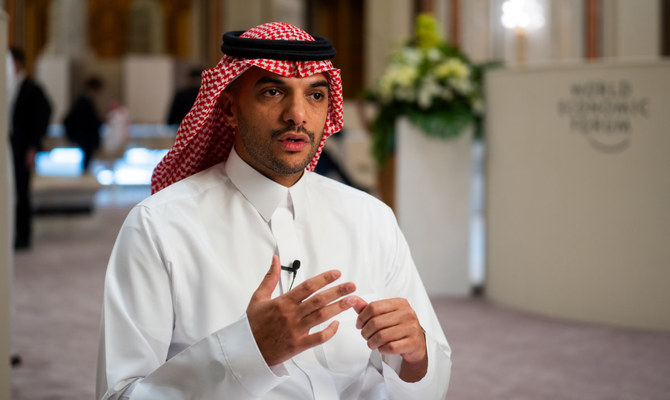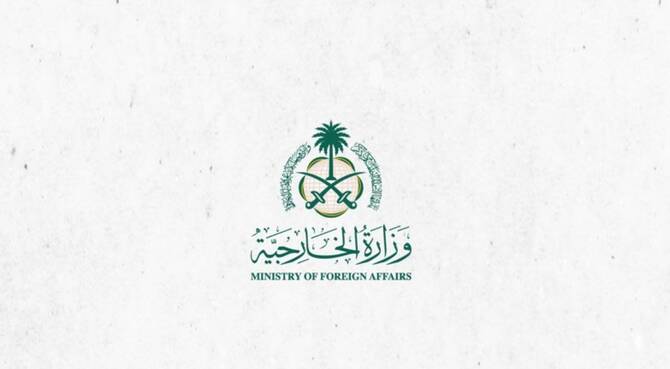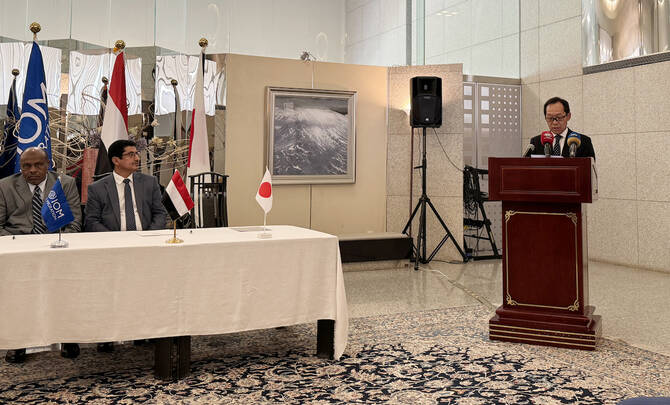RIYADH: Global collaborations are a crucial element in efforts to tackle economic and social challenges, especially given the current state of the world, a leading Saudi official said.
In an interview with Arab News on the sidelines of the two-day World Economic Forum Special Meeting on Global Collaboration, Growth, and Energy for Development, which concluded on Monday in Riyadh, the Kingdom’s vice minister of economy and planning, Ammar Nagadi, spoke about the important role such gatherings can play in advancing economic cooperation to address global challenges.
He believes the world is going through a “unique” time, with economic and social challenges worldwide and human development at a critical stage.
“Because of this, global collaboration and the world convening together become more and more important,” Nagadi said.
“We have seen that over the last few years that Saudi Arabia is becoming a platform that brings together different people from different parts of the world to discuss challenges and to address these challenges,” and the World Economic Forum special meeting is a continuation of that process, he added.
“We have more than 1,000 leaders today from different sectors (attending the meeting). We have heads of states, private sector and public sector leaders, and entrepreneurs from more than 70 countries across the globe.
“I think this diverse group, coming together to discuss and address global challenges is a unique opportunity and we are very happy to have it here in Riyadh today.”
Describing the economic landscape in the Kingdom, Nagadi said the Saudi economy is going through a very strong period of transformation that is reflected in the progress the country has made in terms of growth and diversification.
“Last year, Saudi Arabia’s non-oil activities grew by 4.4 percent, but I think the most important thing to realize is that non-oil activities, as a percentage of total gross domestic product, have reached, for the first time in history, 50 percent of the total GDP,” he added.
This represents a significant milestone that reaffirms the progress made in efforts to diversify the national economy, he added, which have created numerous benefits, including investment opportunities and improved job prospects for Saudis.
“If I take one example, you will see that unemployment last year in the last quarter has reached an all-time low of 7.7 percent, and we hope to see that momentum continuing,” Nagadi said.
He believes this momentum will also continue in terms of growth and diversification.
“We target to grow around 5 percent for non-oil activities this year but we have seen recent forecasts by the IMF (International Monetary Fund) where they’re expecting Saudi Arabia to further grow in 2025 by around 6 percent,” he added.
Saudi Arabia is also making progress toward achieving sustainability goals, which Nagadi said is another important topic.
“What we have today is Vision 2030, which is very ambitious, and sustainability is an integral part of that vision,” he added.
“We have economic goals, social goals, and environmental goals. If I were just to take the environmental part of the sustainable development goals, you will see that Saudi has put in a lot of efforts as part of Vision 2030.”
The Saudi Green Initiative, announced in March 2021, is a great example of what the Kingdom is doing not only to drive economic growth but also to protect the planet, Nagadi said.
“The aim is to achieve net-zero emissions by 2060, and the goals are to increase the renewable energy mix to 50 percent of the total energy mix and plant 10 billion trees by 2030 as well as protecting land and sea,” he said, adding that 50 million trees have already been planted.






















